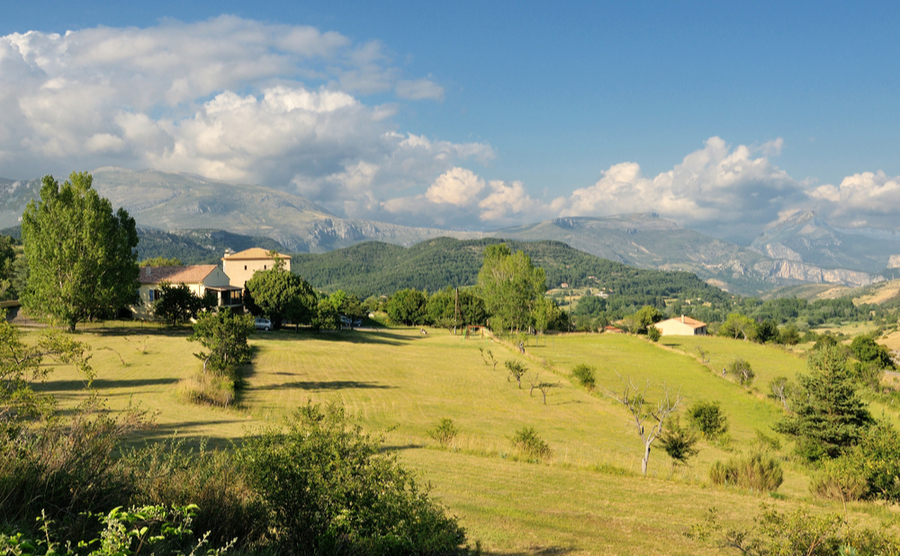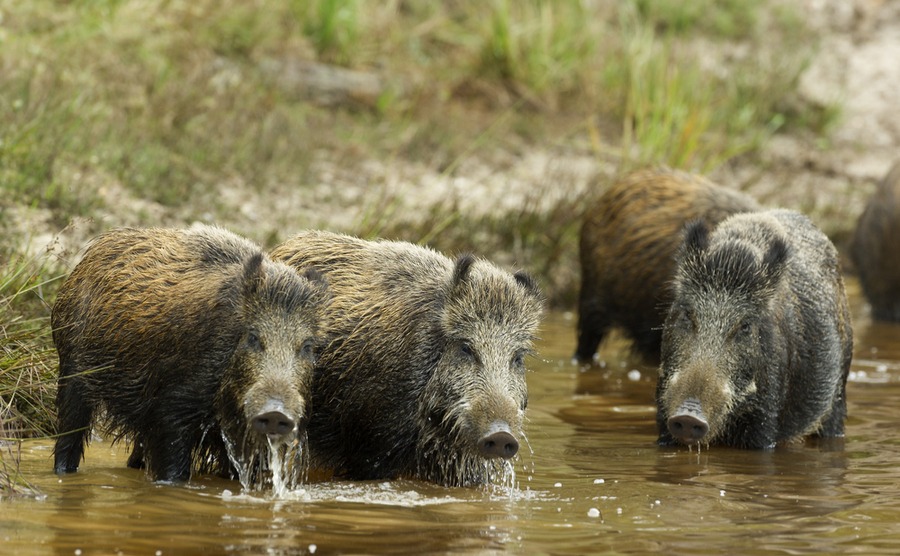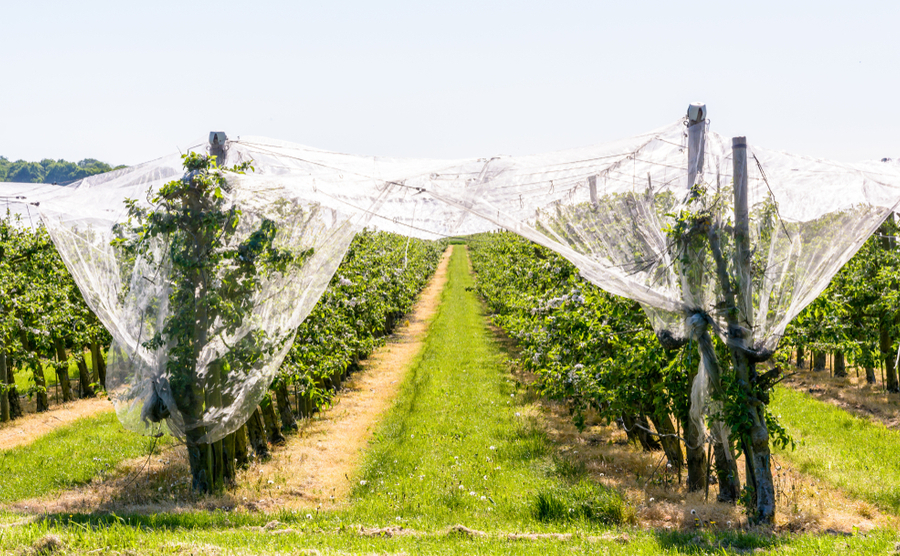Moving to France, to rural areas in particular, brings many of us closer to wildlife and nature than probably ever before. Some encounters may be welcome, others not so much. But there are some important things to know when relocating to France. Especially during Spring, one of the most beautiful times of the year, as well as an important time for the wildlife here.
Find homes in France via our property portal.

Wildlife in France comes in all shapes and sizes
Protection of wildlife
Wildlife in France is fiercely protected and valued. As a new homeowner in the country, it is important to note that there is a “closed season” for trimming bushes and hedges. Running from mid-March until the end of July. While not enshrined in law for homeowners, it is a respectful request from the LPO (League of the Protection of Birds) and in certain areas is further enforced by local prefectures. This is to ensure that breeding and nesting birds are not disturbed or dislodged during this period. It also protects animals seeking sanctuary in hedges – such as insects, small mammals and hedgehogs. Farmers, however, are legally obliged to only cut bushes and hedgerows outside of the period from 1st April until the end of July.
Dog owners need to be mindful that France’s Office National des Forêts (ONF°) reminds all citizens of the importance of laws in place to protect spring wildlife during the breeding season. Between April 15th and June 30th, dogs must be kept on lead when walking through forest or wooded areas. As well as through orchards, vineyards, ponds and lakes. This is to prevent dogs from disturbing young wildlife, nests or breeding sites of wildlife in France. Failure to comply can result in an expensive penalty of up to a €750 fine.
Work is also underway to protect birds from the dangers of French ski resorts. Using a program where attaching brightly coloured discs to electricity wires and ski lift cables is helping to prevent accidents with success.

The beautiful French countryside
Protection of the countryside
Following the rising phenomena of recent years, of many neighbourhood disputes and complaints of “disturbances” from new residents when moving into rural areas, a new law now protects “country habits” in France. Perhaps accelerated by the famed court case of “Maurice” the cockerel. Where upon arrival, a new resident decided to take the owner to court for noise disturbance and loss. Leaving Maurice to crow on victoriously for the rest of his days!
Although sensory heritage legislation has existed in this county since 2021, it has proven hard to enforce. With decisions being left down to the discretion of judges. But no longer! This new law is wider-reaching and ensures that no new resident can legally challenge something that was operating before their arrival. Although it has been made clear, that this law will in no way protect those behaving outside of the law or current regulations. Particularly when it comes to environmental matters.
In good news for goats, a newly introduced adopt-a-goat scheme in France requests help from landowners to save the animals. The scheme is reportedly experiencing great success. Saving over 1000 goats from abattoirs over the last 5 years.
In other welcome news, it is recognised that Cockfighting, (a pastime once popular in Northern France) is now firmly on the decline. A younger audience is no longer invested in the breeding of roosters for this purpose, perhaps having more interesting pastimes with which to occupy themselves. To the pleasure of animal rights activists and animal lovers alike.

You’ll still find a good few wild boards in France, like these three photographed in the Charente-Maritime.
Hunting
Love it or hate it, you can’t avoid it. Wild boars present one of the biggest challenges to wildlife in France. This year perhaps more so than ever. Thanks to the mild winter we experienced last year, France has seen wild boar numbers rise alarmingly. Farmers around the country reporting more and more damage created by them. This in turn affects us, the public, with crop production reducing and rising prices. In response, wild boar hunt dates have already been extended this year. Desperate farmers pleading for help to contain the increase in numbers, particularly in South West France.
Not only do wild boar adversely affect farmers, but they also cause damage to private properties, as well as being the cause of car accidents. With increasing collisions, especially at dusk and at night. In an attempt to reduce numbers and damage alike, innovative wild boar net traps have been under testing in southwest France. During a three-year trial, which is to be extended to farmers and property owners in Dordogne.

An apple orchard in the French countryside covered by a thin net veil to protect the fruit from insects and birds
Pest control
Due to increasingly mild winters in France, unfortunately, the number of pests is on the rise. Asian hornets pose a triple threat. Not only to the bee population in France. But also to public health according to the French minister for biodiversity. Once rare and requiring reporting, to track the geographic spread, they are now found almost everywhere throughout France. These insects look to create their first hives in spring. Normally, it is advised to set traps for the queens in April when they begin setting up colonies. But this year, the advice is to put out traps using wine, beer and grenadine syrup as early as February. Simply because the mild winter didn’t kill them off. France has now implemented a new national plan to fight against Asian hornets.
Mosquitoes are another insect thriving as a result of milder winters. Once seen mainly at dusk, these animals are now present during the day. Tiger mosquitoes continue to spread throughout France, and are now officially present in Normandy. The only region of France said to have previously escaped them. Free traps against tiger mosquitoes have been distributed in South West France, with 500 kits issued to residents to try and contain their numbers.

The French lifestyle awaits you
Dog owners beware
Another pest, the proccessionary caterpillar, while not on the rise in France, but on the move earlier than ever, strikes fear into many. In particular dog owners. These caterpillars can cause necrosis of the tongue in dogs. With many reported sightings well before normal periods. If your dog does come into contact with these animals, ensure they do not sniff or lick them. The tiny hairs transfer easily and are impossible to remove. If your dog does come into contact, get to a vet as soon as possible. Ensuring in the process that you and your family members do not touch them.
Ticks are also prevalent here, with the mild winter not having killed them off either. In France, it is important to regularly treat your best friend with a flea and tick treatment. These insects can also cause harm to pet owners. With some being carriers of Lyme disease. Many people do not treat their animals over winter thinking they pose no threat over this time, but vets have advised that this is very much no longer the case. With as many ticks being present and able to cause harm during the winter months as during summer.
France is currently undergoing trials for a vaccine looking to combat Lyme disease. Preliminary results are looking positive. With around 10-20% of ticks in France said to be carriers of Lymes disease and number of people contracting the disease over recent years increasing, this can only be good news. It is said that for any tick bite that presents with a ring around it, in the form of a bullseye, immediate medical attention should be sought.

A resurgence of swans in a French river
The resurgence of wildlife
But it’s not all bad news. France is reporting a resurgence in some species of wildlife that was thought to be on the decline. Over the past few months, hunters claim that they caught (and subsequently released) a golden jackal in France. They are ‘90% sure’ the animal was a jackal, and are now waiting for DNA test results to confirm.
The otter population has been reported to be making a slow and steady comeback in France. However, the population remains fragile. In addition, brown bear numbers have risen in France for the first time in 30 years. With 83 bears and 16 cubs being recorded in the Pyrenees last year.
And finally…
There have been reports from concerned passers-by of wild animals in France (including deer and squirrels) appearing to be drunk at this time of year! The strange behaviours include staggering around and appearing to suddenly fall asleep. However, the public should rest assured it is in fact down to their eating habits at this time of year and no cause for concern. According to nature experts, this type of wildlife eats more than normal at this time of year. Resulting in the increased vegetation in their system fermenting, giving them the appearance of being drunk!
You might also enjoy:










